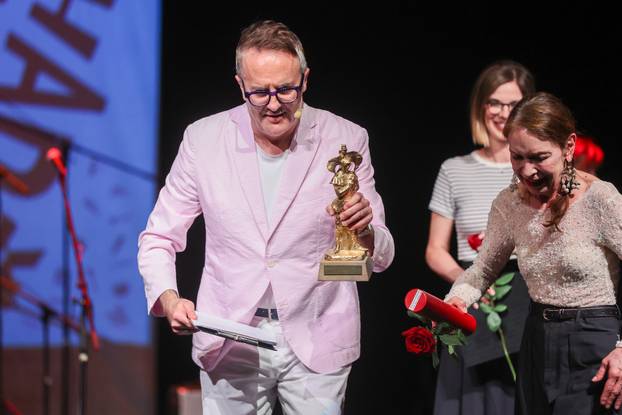Necrology Pianist Alfred Brendel – NRC
/s3/static.nrc.nl/images/gn4/stripped/data133810079-22c32c.jpg|https://images.nrc.nl/Ri6XOVlJ66L5de1EbBNxhnUxtvg=/1920x/filters:no_upscale()/s3/static.nrc.nl/images/gn4/stripped/data133810079-22c32c.jpg|https://images.nrc.nl/F9AncUBAiXwtzERnH-RAGI2d9Yg=/5760x/filters:no_upscale()/s3/static.nrc.nl/images/gn4/stripped/data133810079-22c32c.jpg)
Alfred Brendel himself had surprised his big and long career as a pianist, he said in his book Music, Sense and Nonsense. But he couldn’t admire himself. « The fact that I can develop a musical band with the public and fill concert halls, despite my strange grimaces, is not a source of pride for me, but especially of surprise. » Alfred Brendel died on Tuesday in his hometown of London. He became 94.
With the confused hair, the eternal frown, the scattered glance behind thick spectacle lenses, Brendel seemed to be an anti -hero from the old films of Jacques Tati and Charlie Chaplin, whose work he got to know and admire early. In his childhood he was often found in the cinema in Zagreb, of which his father became director in the late 1930s. That fascination remained all his life.
« Film and theater breathe, at their best, something magical, » said the pianist. « Good actors are my brothers and sisters, and the real big ones of them form my examples. A musician must, after all, play roles, portray characters, fold themselves into the will of the composer. »
Skeptic
In descriptions of his piano game, the word intellectually fell almost always, he could not do much with that typing. He did not see himself as a person who was primarily led by his mind. Brendel was a musician and writer and, yes, he also thought. In his eyes, a interpretation was a mixture of chaos and order, feeling and reflection. It was about balance: thinking reduced the heat of chaos and feeling heated the coldness of the order.
But a good interpretation was also just a search: listening to what the piece and the instrument told him, keep trying out until a passage convinced him. “For a scene in his film Mon Oncle Director Jacques Tati endlessly searched for the good sound for a splashing glass on the kitchen floor. He experimented with all kinds of glasses and surfaces until he found it. ”
Perhaps it was his eternal – somewhat ironic – detachment that Brendel gave his intellectual image. He didn’t want to belong to anything. That only brought misery. He pulled that lesson from the Second World War, who coincided with his puberty. At the end of it, he was even sent to Yugoslavia from the Austrian Graz at the age of fourteen to help with the construction of trenches.
His war experiences made him « a skeptical loner, » Brendel wrote. He grew early on to an autodidact that do not commit himself to directions, schools or teachers. « As a child, I saw the Nazis, the Croatian fascists, the SA and SS, the Gebral about Blut und Bered, the chaos of the last war years. I then found crowds suspected, community painful and nationalism. The only group with whom I have made peace were concert visitors, at least, as long as they did not cure. »
Third -party index finger
Brendel was born in 1931 in the fragmented remains of the Habsburg Empire. And his natural biotope became the Central European tradition, in particular the Viennese classical composers such as Haydn, Mozart, Beethoven and Schubert. In his book After the final chord Brendel apologized to this famous foursome « for everything I have done to their music. » The Viennese self -mockery was deep in him.
His preference for absurdist and grotesque humor came back in his poetrywho said he was whispered by an alter ego, who « takes me away from myself in the unknown. » His collection of poems A finger too much forms an impact thereof. He writes about a pianist with a third index finger, a laughing party who proves that God is a humorist, a philosophical mouse, a keyboard spy addicted to honey butterhams, an ambitious knee, Beethoven with a mustache, and a society that ‘the coughing and population’.
At the age of 77, Brendel said goodbye as a musician. In NRC he said about that: « Someone once asked me: how do you want to die? Then I answered: at the right moment. That also applies to piano playing. I don’t want to wait for physical decline dictating. I play concerts out of free will, not under the influence of a demonic coercion. »
Pianist Alfred Brendel in 2008 in the Concertgebouw in Amsterdam, during a rehearsal for his last concert in the Netherlands. Photo ANP / Cynthia Boll
Brendel then continued to write, give lectures and took a single young pianist under his care. The Brit Paul Lewis was one of them. “The most important thing Brendel taught me is that we are first a musician and only then the pianist. For him, the wing was no more than a tool to create color and sound. With that way of thinking the instrument no longer knows boundaries, then you let it believe that a piano can sound like a pagot or singing. creates. ”

:format(webp)/s3/static.nrc.nl/wp-content/uploads/2025/06/10162802/data133473446-7c6f03.jpg)
:format(webp)/s3/static.nrc.nl/images/gn4/stripped/data133811978-a9debb.jpg)
/s3/static.nrc.nl/images/gn4/stripped/data133819638-a0c401.jpg|https://images.nrc.nl/jZMjGFqXocoPaU7aFcYHvRuHjZs=/1920x/filters:no_upscale()/s3/static.nrc.nl/images/gn4/stripped/data133819638-a0c401.jpg|https://images.nrc.nl/jQSvjyNRTk-kDjWDXKfbUMMva0A=/5760x/filters:no_upscale()/s3/static.nrc.nl/images/gn4/stripped/data133819638-a0c401.jpg)



